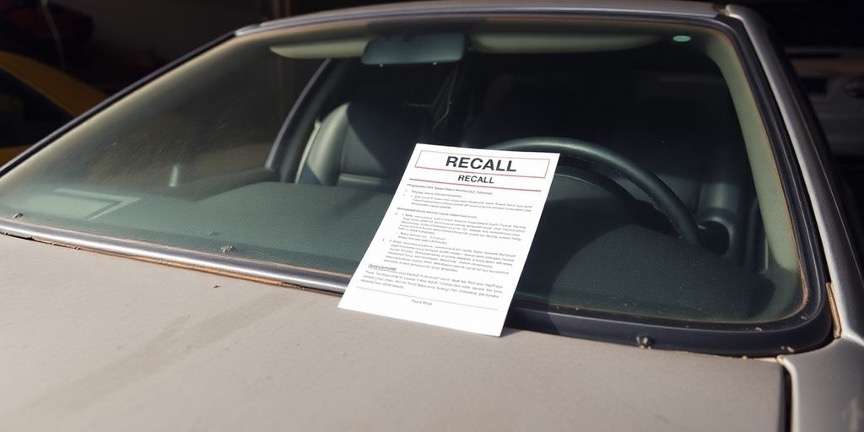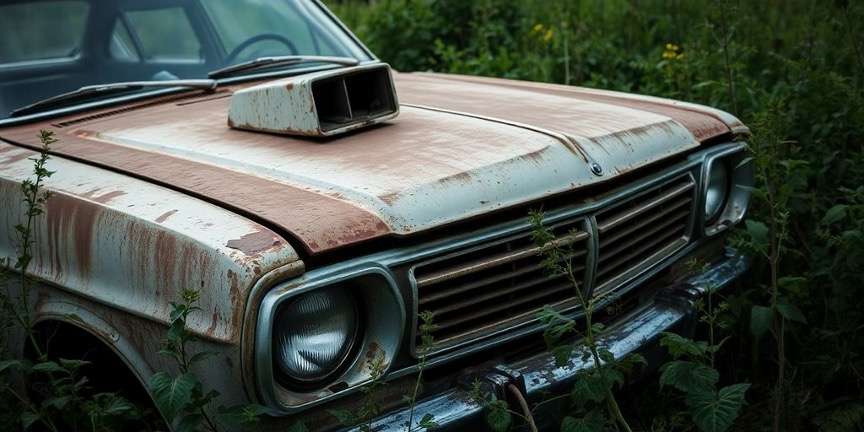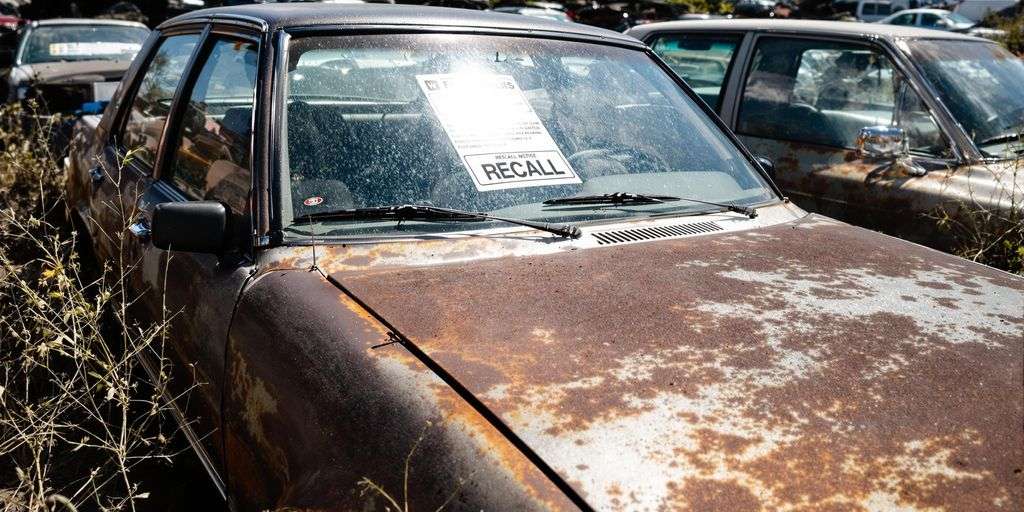Key Takeaways
- Check for open recalls using your car's VIN on the NHTSA website.
- Contact the manufacturer or dealership to understand the repair options.
- Consider the cost of repairs versus the car's value before deciding to fix it.
- Explore selling options if repairs are too costly or the car is beyond fixing.
- Keep records of all communications and repairs related to the recall.
Understanding Car Recalls and Their Implications

What Constitutes a Car Recall?
When a car manufacturer or the National Highway Traffic Safety Administration (NHTSA) identifies a problem that poses a safety risk or doesn't meet safety standards, a recall is issued. This can involve anything from faulty airbags to software glitches. Recalls are not limited to specific car types; they can affect any vehicle, whether it's a budget model or a luxury car. It's crucial to address recalls promptly to ensure safety on the road.
Common Reasons for Vehicle Recalls
Vehicle recalls can arise from a variety of issues:
- Safety Defects: These are problems that pose a risk to vehicle occupants or other road users, like faulty brakes or steering components.
- Non-Compliance with Regulations: Sometimes, vehicles fail to meet federal safety standards, necessitating a recall.
- Durability Concerns: Parts that wear out prematurely or fail to function as intended can also trigger recalls.
Manufacturers are obligated to notify owners and provide a solution, often at no cost.
The Role of the NHTSA in Car Recalls
The NHTSA plays a pivotal role in managing and overseeing vehicle recalls. They ensure that manufacturers comply with legal obligations to fix defects. They also provide a platform for consumers to report issues and track recall status. Vehicle recalls are a critical part of maintaining road safety and consumer protection. The NHTSA's involvement ensures that manufacturers address defects efficiently and transparently.
Recalls are a part of the automotive industry, reflecting the complexity and potential for unforeseen issues in vehicle manufacturing. Addressing them promptly is key to maintaining safety and trust.
Steps to Take If Your Junk Car Has an Open Recall
Identifying an Open Recall on Your Vehicle
First things first, you need to find out if your junk car has an open recall. Start by locating your Vehicle Identification Number (VIN). You can find it on the driver's side dashboard, visible through the windshield, or on the sticker inside the driver’s side door. Once you've got your VIN, visit the National Highway Traffic Safety Administration (NHTSA) website and enter the number into their recall search tool. This will tell you if there are any active recalls on your vehicle. Alternatively, check the manufacturer's website or ask at a local dealership.
Contacting the Manufacturer or Dealership
Once you confirm there's an open recall, it's time to get in touch with the manufacturer or a local dealership. Call them up and provide your VIN to discuss the next steps. They’re responsible for fixing the issue at no cost to you, even if your car is a bit of a clunker. They might ask you to bring your car in for an inspection first, so be prepared for that.
Arranging for Necessary Repairs
After contacting the dealership or manufacturer, arrange a time to have the necessary repairs done. If your junk car is not drivable, explain the situation to them. They might offer towing services or suggest a nearby location where you can get the repairs done. Keep in mind that some recalls might take a while to fix, especially if parts need to be ordered. Patience is key here, but remember that your safety is worth the wait.
Exploring Your Options: Repair, Replace, or Sell
Evaluating the Cost of Repairs
When your junk car has an open recall, the first thing you might think about is getting it fixed. But before diving into repairs, it's crucial to weigh the costs. Repair expenses can sometimes exceed the car's market value, especially if it's an older model or has significant damage. Consider getting a detailed estimate from a mechanic to understand what you're dealing with. If the repair costs are too high, it might not be worth the investment.
Considering Selling Your Junk Car
If fixing your car seems too pricey, selling it could be a viable option. You can sell your car to a junkyard or through online platforms that specialize in buying old vehicles. Selling might be a good choice if the car has multiple issues or if the recall isn't a major concern. Plus, selling can free up space and give you some cash to put towards a new vehicle.
Understanding Replacement Options
Sometimes, replacing your junk car is the best route. If the car is unreliable or constantly breaking down, it might be time to say goodbye. Look into affordable used cars or consider leasing a new one. Replacing your car can offer peace of mind, knowing you have a dependable vehicle. Remember to check for any open recalls on potential replacements to avoid similar issues in the future.
Deciding between repairing, selling, or replacing your junk car can be tough. It's about finding the balance between cost, convenience, and peace of mind. Whether you choose to repair or move on, make sure it aligns with your needs and budget.
Legal Rights and Consumer Protections in Car Recalls

Your Rights Under Federal Law
When it comes to car recalls, federal law has your back. The National Highway Traffic Safety Administration (NHTSA) makes sure manufacturers fix safety defects for free. This rule covers the car for its whole life. If a problem is found, the manufacturer has to let the NHTSA know and then fix it without charging you a dime.
State-Specific Consumer Protections
Your rights can vary depending on where you live. Some states offer extra protections that go beyond federal laws. For instance, they might require faster repairs or provide loaner cars if there’s a delay. It’s a good idea to check what your state offers, especially if you're stuck waiting for parts or service.
Filing a Complaint with the NHTSA
If you’re not happy with how a recall is handled, you can complain to the NHTSA. They have a system for reporting safety issues, which might lead to more investigations or actions by the manufacturer. This can be a way to make sure your concerns are heard and addressed.
It's important to act quickly when you get a recall notice. Not only does this keep you safe, but it also helps you avoid any costs that might come up if you wait too long.
Practical Tips for Managing a Junk Car with an Open Recall
Ensuring Safety While Waiting for Repairs
Dealing with a recall can be a hassle, especially when your car's not in the best shape to begin with. Safety should be your top priority while you're waiting for those repairs. If your car is still driveable, take extra precautions. Avoid long trips, stick to well-maintained roads, and always keep your phone charged in case of emergencies. If the recall involves something critical, like brakes or steering, it might be best to park it until fixed.
Finding Temporary Transportation Solutions
When your junk car is out of commission, you'll need to figure out how to get around. Public transport might be an option if you're in a city. If not, consider carpooling with friends or family. Renting a car is another choice, though it can get pricey. Check if your insurance covers rental cars during recall repairs. Some manufacturers or dealerships offer loaner cars if the recall is serious enough.
Documenting All Communications and Repairs
Keeping a record of everything is super important. Any emails, letters, or calls with the manufacturer or dealership should be documented. Note down dates, times, and who you spoke with. This can be handy if there are any disputes later on. When the repairs are done, make sure you get a detailed receipt or report outlining the work performed. This ensures you have proof that the recall was addressed, which is useful if you decide to sell your car later.
The Impact of Recalls on Junk Car Value and Disposal
How Recalls Affect Car Valuation
When your junk car has an open recall, it can seriously mess with its value. Recalls often highlight safety issues or defects that might make potential buyers wary. Even if the car is barely holding together, a recall can make it seem like a risky buy. This is especially true if the recall involves major parts like the engine or brakes. Buyers might think twice, fearing the cost and hassle of fixing the issue.
Options for Disposing of a Recalled Junk Car
Dealing with a junk car that's also got a recall can feel like a double whammy. But don't worry, you've got a few options:
- Sell it to a junkyard: Many junkyards are willing to take cars with open recalls. They usually strip them for parts, so the recall doesn't matter as much.
- Trade it in: Some dealerships will accept trade-ins with recalls, especially if you're buying a new car from them.
- Use a removal service: Consider a service like EZ CleanUp, which offers cash for cars sidelined by recalls. They handle everything, making it a hassle-free option.
Working with Junk Car Removal Services
If you're thinking about using a junk car removal service, it's a pretty straightforward process. These services often offer free towing and handle all the paperwork. Plus, they pay you cash on the spot. It's a convenient way to get rid of a car that's just taking up space. Just make sure to check if they accept cars with open recalls, as not all services do.
“Getting rid of a junk car with a recall doesn't have to be a headache. There are plenty of options out there, so you can find one that suits your needs without much fuss.”
Remember, junk cars contribute to pollution by leaking harmful fluids, so disposing of them responsibly is key. Whether you sell, trade, or use a removal service, getting that old clunker off your hands can be a relief.
Preventive Measures and Staying Informed About Recalls
Regularly Checking for Open Recalls
Don’t just assume everything’s fine with your car because you haven’t heard otherwise. Always be proactive by checking for open recalls regularly. It might sound like a hassle, but it’s super easy. You can use your vehicle's VIN number to look up any recalls directly on the NHTSA website. Just jot down the VIN from your car's dashboard or door frame, and plug it into the site. It’ll tell you if there are any open recalls you need to worry about.
Subscribing to Recall Alerts
Stay ahead of the game by subscribing to recall alerts. Many websites offer free services that notify you if there’s a recall on your vehicle. It’s like having a personal assistant who’s got your back. You’ll get an email or a text alerting you about any new recalls, so you can take action right away.
Maintaining Vehicle Records for Future Reference
Keeping a detailed record of your vehicle’s history is a smart move. Write down every repair, service, and inspection your car goes through. This isn’t just about being organized; it’s about having proof of maintenance if a recall pops up. Plus, it helps you keep track of what’s been done, so you don’t waste time or money on unnecessary repairs. It’s like having a personal car diary that could save you a ton of hassle down the road.
Staying informed about recalls is not just about fixing problems; it's about keeping you and your family safe on the road. Regular checks and being alert to notifications can prevent accidents and save lives.
Wrapping It Up
So, there you have it. If your junk car has an open recall, don't just let it sit there collecting dust. Take action! Check if the recall is still active and see what your options are. You might be able to get it fixed for free, or maybe it's time to sell it and move on. Either way, dealing with a recall doesn't have to be a headache. Just follow the steps, keep your safety in mind, and you'll be on the right track. Remember, a little effort now can save you a lot of trouble down the road. Stay safe out there!
Frequently Asked Questions
What is a car recall?
A car recall happens when the manufacturer or government finds a safety problem with a vehicle. This means something in the car isn't safe or doesn't meet safety rules, and it needs fixing.
How can I find out if my car has a recall?
You can check if your car has a recall by looking up its Vehicle Identification Number (VIN) on the National Highway Traffic Safety Administration (NHTSA) website. You can also ask your car dealer.
What should I do if my car has a recall?
If your car has a recall, contact the car dealer or manufacturer to arrange for repairs. They should fix the problem for free.
Do car recalls cost money to fix?
No, fixing a car recall should not cost you anything. The manufacturer is responsible for covering the repair costs.
Can I drive my car if it has a recall?
It depends on the recall. Some recalls are serious and mean you shouldn't drive the car until it's fixed. Always check with the dealer or manufacturer for advice.
What if I want to sell my car that has a recall?
You can still sell your car, but it's best to fix the recall first. You should tell the buyer about any open recalls if they haven't been fixed.



